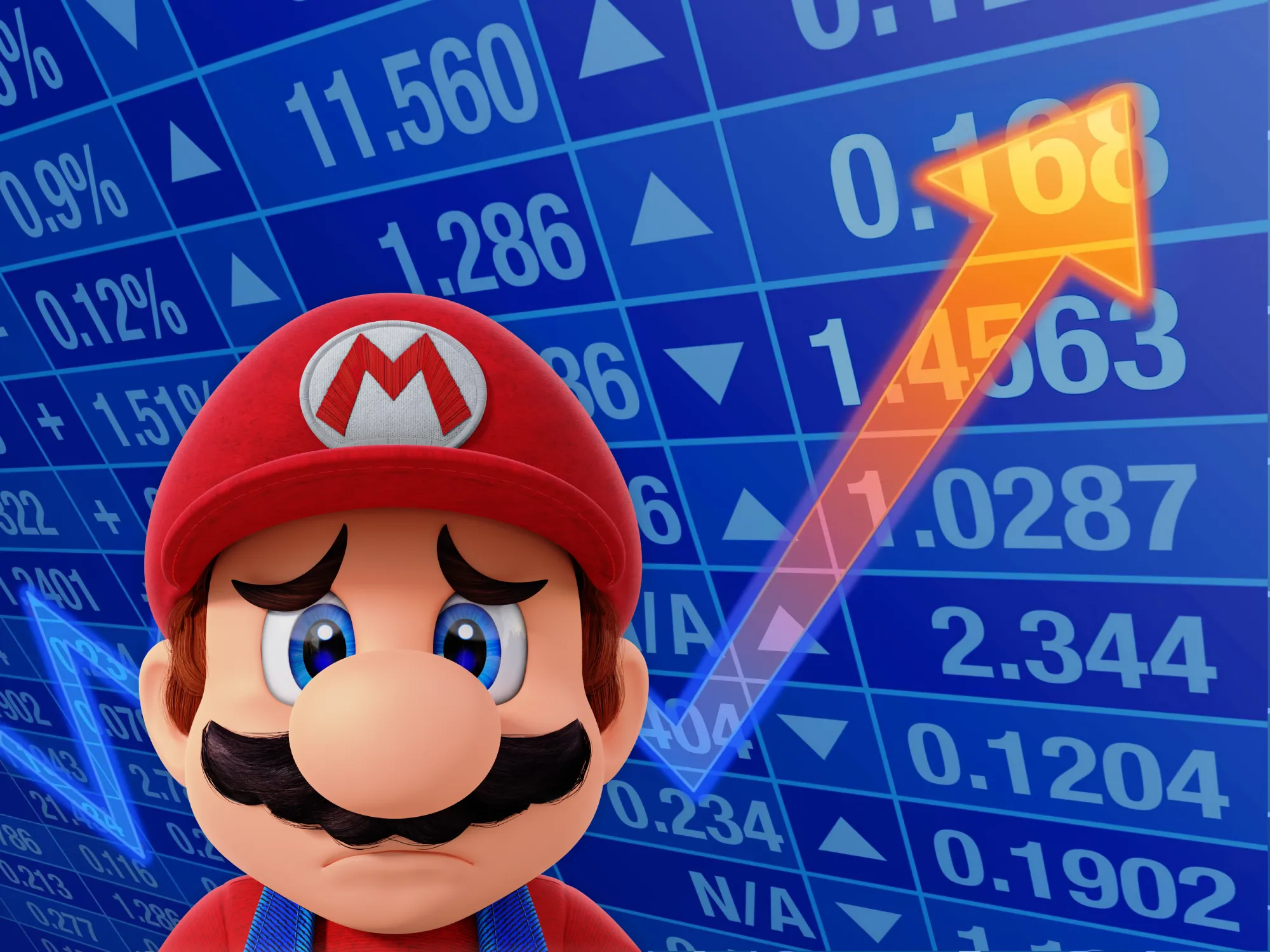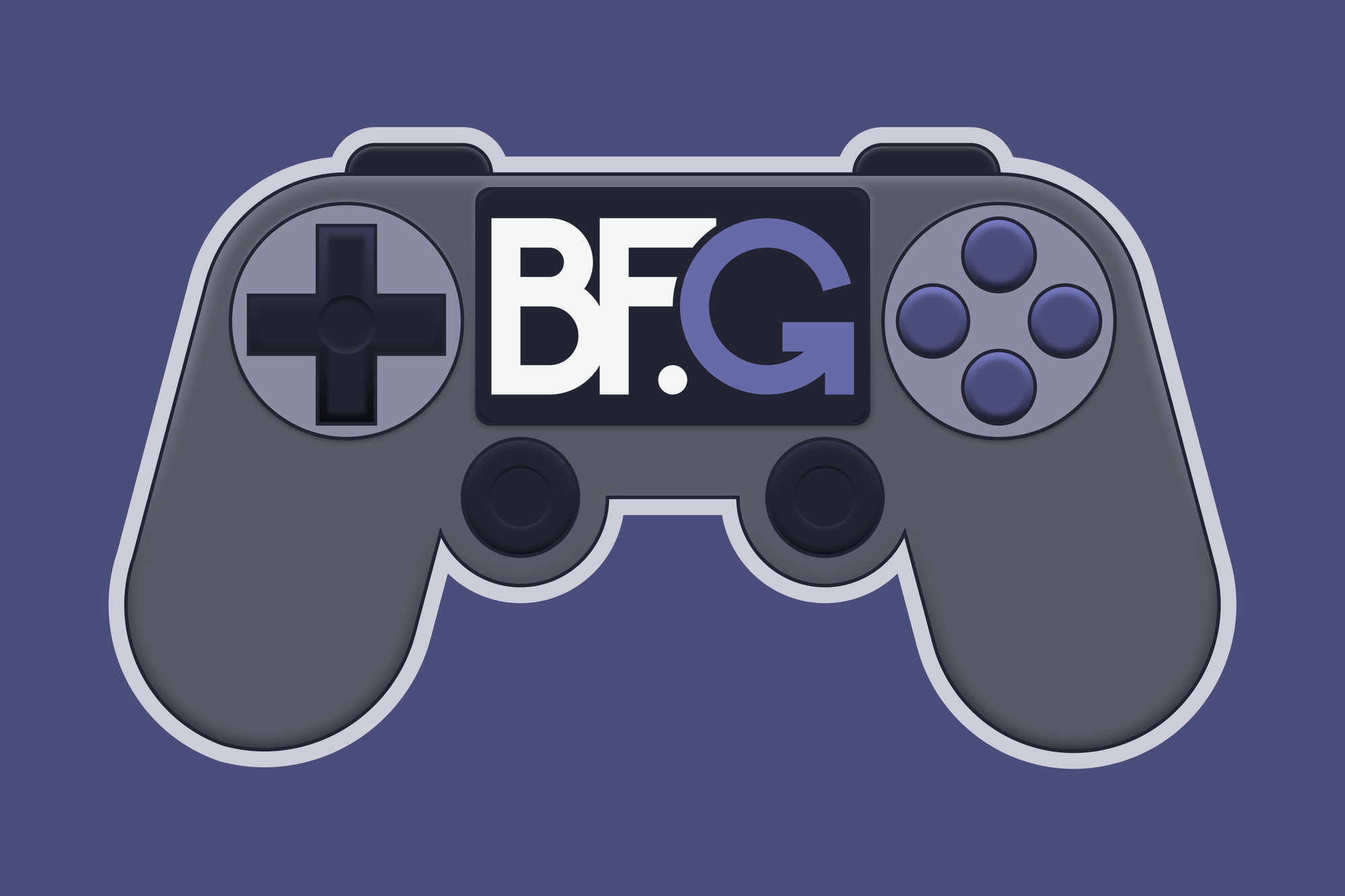How much should a game cost?
I think that $80 is too much for a video game. Let’s talk about how I got to that shocking conclusion.

With the Switch 2 launch, Nintendo also announced that their first-party games (like their flagship launch titles, Mario Kart World and Donkey Kong Bananza) are going to cost $80 for digital copies and $90 for physical. This comes about five years after the first video games hit $70. And that's not even considering the deluxe and collector's editions that run over $100.
And Nintendo isn’t alone. Video games are getting objectively more expensive — just like everything else. (Related: we have a Patreon!) But the new $80 price tag feels like it crossed a subjective threshold, too.
I started writing this thinking I’d get some clear answer I’d be able to point at. Something I’d be able to show off and say, “Even accounting for inflation, we’re still getting screwed.” Spoiler: that’s not (quite) the case.
But I still think that $80 is too much. Let’s talk about how I got to that shocking conclusion.
Mario through the ages
Even right now, if you asked me how much a video game costs, my answer is, “Like $50 or $60?” That’s what NES games cost when I was a kid, that’s what PS5 games cost now. I have no basis for that. I’m that Arrested Development meme.
Let’s stick with Nintendo. They’ve been around forever, and they put out a Mario game every few years that we can use to track the cost.
Here are my data points:
- Super Mario Bros. (1985)
- Super Mario World (1990)
- Super Mario 64 (1996)
- Super Mario Sunshine (2002)
- Super Mario Galaxy (2007)
- New Super Mario Bros. U (2012)
- Super Mario Odyssey (2017)
- Super Mario Bros. Wonder (2023)
That’s a good spread with a game about every five years across seven consoles. The numbers for these are pulled from various sources around the web and occasionally looking up scans of print catalogues that made me feel really, really old.

At (or around) launch, 40 (guh) years ago, a Super Mario Bros. cartridge cost about $25. That $60 number wasn’t really until 2012. What it all means is that, yes, Nintendo games have been getting more expensive over time. Adjusted for inflation, though, they’ve actually been getting marginally cheaper.

The same is true of the consoles themselves (which actually surprised me).
Sure, adjusted for inflation, games are (relatively) cheap — if games tracked directly to inflation, they’d cost as much as $150! But if you look at the more human cost and an average person’s buying power — like minimum wage hours or percentage of median household income — the real cost is creeping up.

If you made minimum wage in 1985, it would’ve taken you seven and a half hours to buy a game. In 2025, it’s 11 hours. Taken as the whole 40 year span, it’s trending down, but the recent bump in video game prices — and the US government’s utter lack of movement on the minimum wage — makes that trend swing back up.

Or what about as a percentage of household median income? What (small) percentage of a household’s monthly income does a game cost? Yes, it’s barely more than a percent, but it’s a good way to track the cost of a game versus how much total money a household is working with. And yes, it's increasing. Again, it's a tiny amount, but it's growing.
But all of this isn't just because of inflation.
It’s that everything sucks
According to the US Census Bureau, about half of the renters in the United States are “cost-burdened” — meaning they spend over 30% of their income on rent. The number of households moderately or severely burdened has doubled since 1960. (This, like most bad things, disproportionately impacts people of color.)
Rent, by the way, is increasing faster than inflation. The cost of electricity in the US is also increasing faster than inflation. So is the cost of food. And water. And health care.
Even other forms of entertainment are getting prohibitively expensive. The national average price of a movie ticket is just over $16. Two tickets and a popcorn are over $40. If you're trying to take your whole family and they want snacks, you'll be pushing $100 easy.
Yes, wage increases are outpacing inflation (on average) and the buying power of a dollar is higher than ever before, but things you have to buy with those dollars are getting more expensive.
Unless you’re a corporation or a CEO
In 2025, Nintendo posted a $4.7 billion gross profit. EA showed $5.9 billion. UbiSoft came in at $1.8 billion. TakeTwo had $3.1 billion. Before Activision was acquired by Microsoft, it posted $1.5 billion in profit in 2023.
As of 2023, CEOs are paid 290 times as much as an average worker. That’s for all CEOs. In the games industry, it’s no better (that’s a good link, but there’s a certificate error on the site — here’s a writeup about the report).
Chances are, you’re not a CEO. (And if you are, you should join our Patreon ... and remember that we don't have a multi-botting policy, so feel free to join as many times as you want.) Instead, you’re statistically closer to one of the 15,000 people Xbox (technically Microsoft) has laid off this year. Or the 300 from EA this year. Or the 600 TakeTwo got rid of in 2024. At the same time they're all posting record profits.
Notably, Nintendo isn't on that list of layoffs. Historically, they've avoided the massive layoffs afflicting the rest of the industry. I'm not saying I'm happy about spending $80 for Mario Kart World, but it's easier to swallow in support of a company that isn't, as Summer Eternal puts it, "burning human fuel in their insatiable lust for money. (It's also worth noting that the gap between CEO pay and average worker pay in Japan is a tenth of what it is in the US.)
Number goes up forever
As of March 2025, Nintendo’s Legend of Zelda: Tears of the Kingdom sold about 22 million copies worldwide. It’s their eighth best seller of all time. It launched in 2023 at $70 — meaning an income (not profit) of $1.5 billion on that title alone (assuming they all sold for $70).
No one thinks games should be free. But Nintendo could have given away every one of those copies of Tears of the Kindgom for free over the last few years, and only taken a 25% hit to their profit this year alone.
Games are more expensive to make than ever. Development budgets for AAA games measure in the hundreds of millions of dollars. Cyberpunk 2077 had a budget of $316 million to cover development and marketing (plus another $125 million post-launch). Activision spent $700 million on Black Ops Cold War. The Last of Us Part 2 cost $220 million. Horizon Forbidden West came in at $212 million. Big releases employ (however briefly) hundreds of devs per game.
It’s all a consequence of the global infinite growth (line goes up) economy and there’s no going back now. But the drive for profit is outpacing the ability of the audience to comfortably afford the product. Ballooning budgets and the obsessive need to deliver stockholder value make partaking in the art we all want to share burdensome. And the pursuit of maximizing shareholder value means that (most of) these companies are separating artists from their art through near-constant layoffs while paying CEOs multiple times the combined salaries of those let go.
And I think that’s why the new $80 price tag hits such a sour note. At a time when the big studios make games with nine-figure budgets, pay CEOs astronomical salaries, and post record profits, their audience of consumers — us — are in the middle of a global cost of living crisis that isn't slowing down.
Video games are supposed to be an escape from that. Until they start contributing to it.

This post originally appeared on BigFriendly.Guide
Please pardon any formatting weirdness




